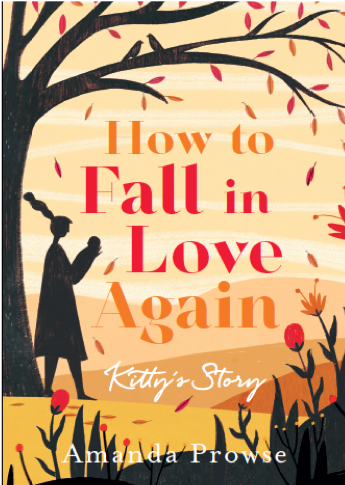The Story:
Kitty Montrose lives an idyllic life in the Scottish Highlands. An adored only child, she delights in the closeness she shares with her horse-riding mother and her gentle father.
But her perfect world is shattered when her mother is diagnosed with clinical depression. The illness lurks in their home like a dark monster. Kitty finds solace and escape in the arms – and the bed – of her best friend Angus.
Soon they are married, with a baby on the way. But what happens when Angus turns cold and unfeeling? Will Kitty regret staying with him for the sake of their child? And, years later, can Kitty's old flame, Theo Montgomery, help her to discover her perfect life? Or is it too late for them both?
A Note From Amanda:
I wanted to explore the idea of happiness and what makes people happy so came up with the idea of 'Anna' and 'Theo'. Essentially, Anna is very poor but has a mum who loves her and Theo's family are incredibly rich but they don't have any time for him. So can money buy you happiness, or is having a loving family worth more than having a big house?
Anna and Theo's story was originally going to be a single book but I couldn't fit all of the details in, so I split it into two stories. To give it more depth, I told the stories from each of their perspectives separately, so when a scene is shared, if you read both books, you get different information from to give you a richer understanding of the situation.
In addition to that, to fill in any remaining gaps, I included a third book in the collection, 'How to Fall in Love Again' which tells the story from Kitty's point of view, a girl who went to Theo's school and knows some of Theo's background.
All of these titles can be read as standalone books but when you read all three then the overall story has greater depth and should be read, 'Anna' first, then 'Theo' and finally 'How to Fall in Love Again' which is Kitty's story.
Standalone or Series?
Book 3 of 3 in the 'One love, two Stories' collection. Can be read as a standalone book but better when read after 'Anna' and then 'Theo'.
